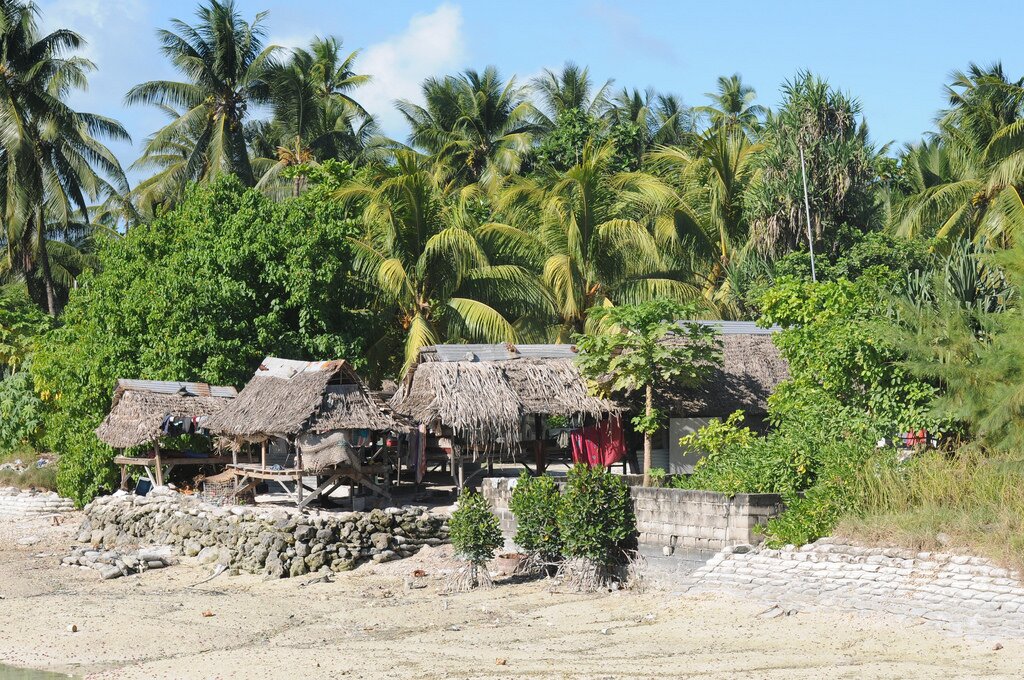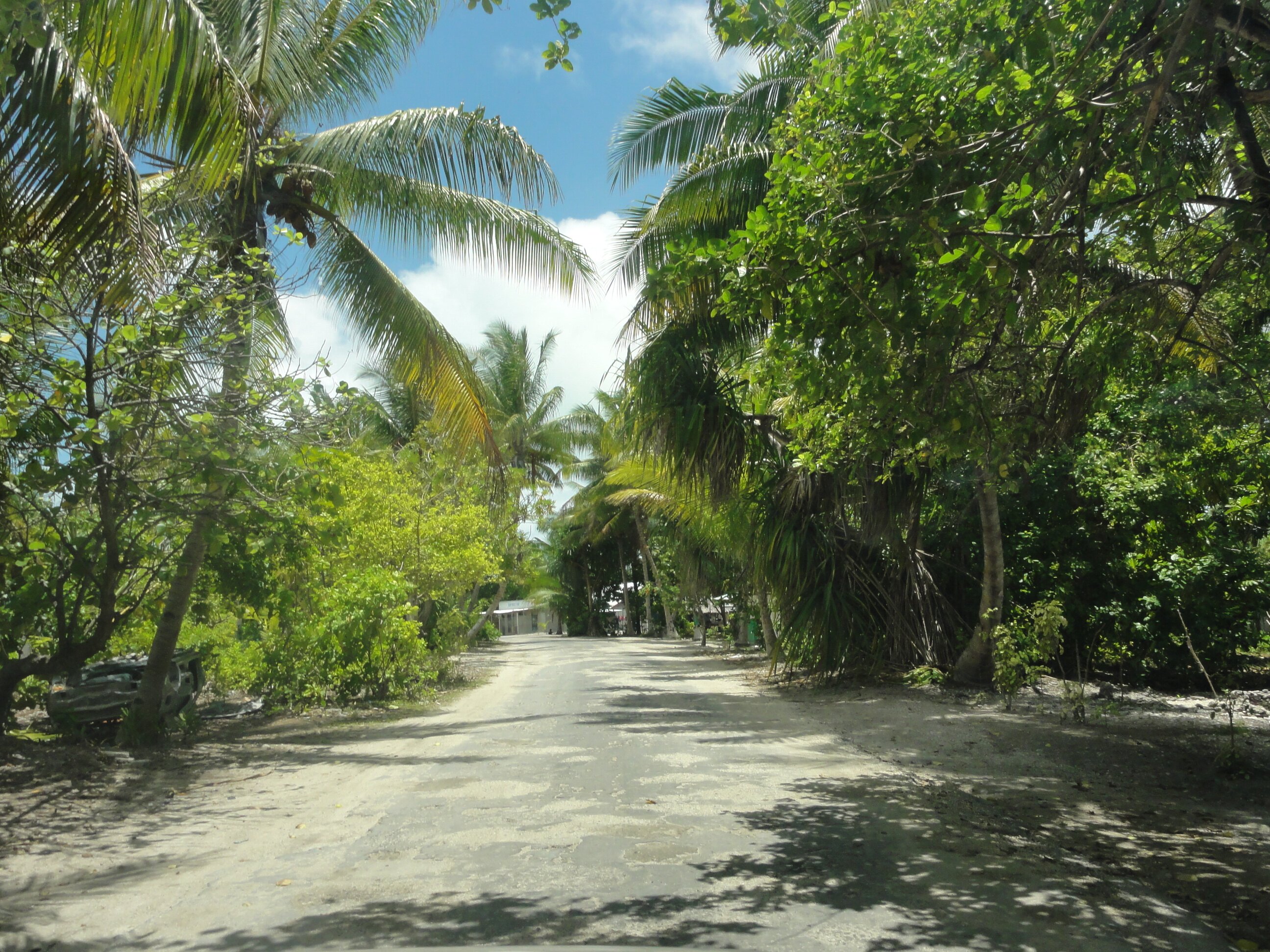Hold the line: a taste of energy access — or lack thereof — in Kiribati’s capital
In Kiribati, poor access to electricity limits phone and email communication, some of a journalist's most important tools. But Kiribati's culture has adapted — so this visiting reporter did too.

When Discourse Media offered me a chance to travel to Kiribati, a tiny country in the middle of the Pacific Ocean, several questions raced through my mind. What language, for instance, was spoken in Kiribati? How would I get there from my home in Hanoi, Vietnam, a few thousand kilometres away? And what would the country’s people — 63 per cent of whom lack electricity, according to one study — say when I asked them about “energy access?"
I didn’t give much thought to how my own energy or communications access would affect my work there. But I probably should have.
Because I live in a middle-income country and travel widely around Southeast Asia, I’m used to the odd dropped call, patchy Internet signal or short power brownout. I’m not completely addicted to my devices: whenever I go on vacation, I always try (and often succeed) to include a day or two of “digital detox” from my laptop and iPhone.
But Kiribati, with its sub-par energy and communications access, tested my patience—even before landing.
"I didn't give much thought to how my own energy or communications access would affect my work [in an energy-poor region]. But I probably should have."
My local interpreter, Tinaai, would turn out to be very good, but she had no Internet at home and didn’t check her email regularly. And even though I called her mobile phone at least a dozen times before my trip, it hardly ever rang.
As a result, the process of nailing down the trip’s logistics took weeks instead of days. And because I couldn’t reach Tinaai in the days before my flight, I wasn’t sure if she would pick me up at the airport in Tarawa, the capital, or not. (She did.)
Even government officials were oddly slow to respond to emails. “Thank you for getting in touch and my apologies for the belated response,” Rimon Rimon, the president’s spokesperson, wrote in reply to a message I had sent six days earlier. “Power and Internet disruptions in the country,” he added, were taking a toll on his “efficiency to respond!”
In Tarawa, the owners of my oceanside guest house said they had a WiFi router that ran on solar power. (The municipal electricity grid was not to be trusted.) Great! But the connection was so glacial that it reminded me of a 56k modem, circa 1997. I adapted by toggling my email setting to “basic HTML”— but even then it took up to a minute to load a single message. And sometimes emails didn’t load at all.
The signal on my iPhone was serviceable, if patchy, and I had some luck checking emails via 3G. But my phone turned out to be little use for arranging basic logistics and setting up interviews, because I could not get people on the line in the first place.
Sometimes a phone would ring once but never again. Early in the trip, for instance, I called a local newspaper editor to request an interview. He texted back and said he was available a few days later and would be happy to meet me then.
I texted back a few times, and tried to call, to no avail. So much for that.
On other occasions, Tinaai, who was also my driver, was up to an hour late picking me up.
“Where are you?” I texted, with a touch of impatience.
There was no answer, of course. Her phone was out of batteries, and she was running on island time.
Some of the people that answered the phone said they would prefer if I just came by their house during this or that time window to check on their availability.
“Can we not just set a time to meet now, over the phone?” I asked.
No, they replied, because they weren’t sure what they would be doing later.
Eventually, I realized that my communications difficulties were only partly related to technological limitations. Tarawa was such a small place — it has only one paved road — that no one was ever more than a few minutes away by car. Kiribati also has an incredibly social culture that is naturally pro-face time, rather than screen time. That seemed to partly explain why even people in their twenties — the smartphone demographic — would occasionally leave their phones at home when they went out.

As the week wore on, I mostly stopped calling and emailing people. Instead, Tinaai and I simply drove to their homes and knocked on their doors— and if the person was home, they were usually available. Even Taaneti Mamau, who would be elected president a few days after I left Kiribati, agreed to speak with me when I showed up unannounced at parliament.
On one of the last days, I arrived about 90 minutes late for a meeting at the Ministry of Public Works and Utilities. (Tinaai had been unusually slow, even for her, to pick me up, and traffic on “the road”— which has no name — had been especially heavy.) And, sure enough, the official whom I was supposed to meet had left the building.
“Do you know where he went?” I asked a receptionist.
The answer was no.
“Does anyone here happen to know his phone number?” I ventured.
No, she replied, but someone would go out to look for him.
I sat down to wait.
